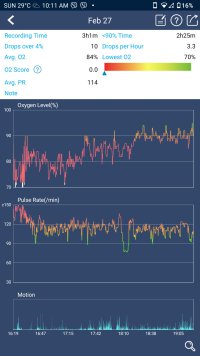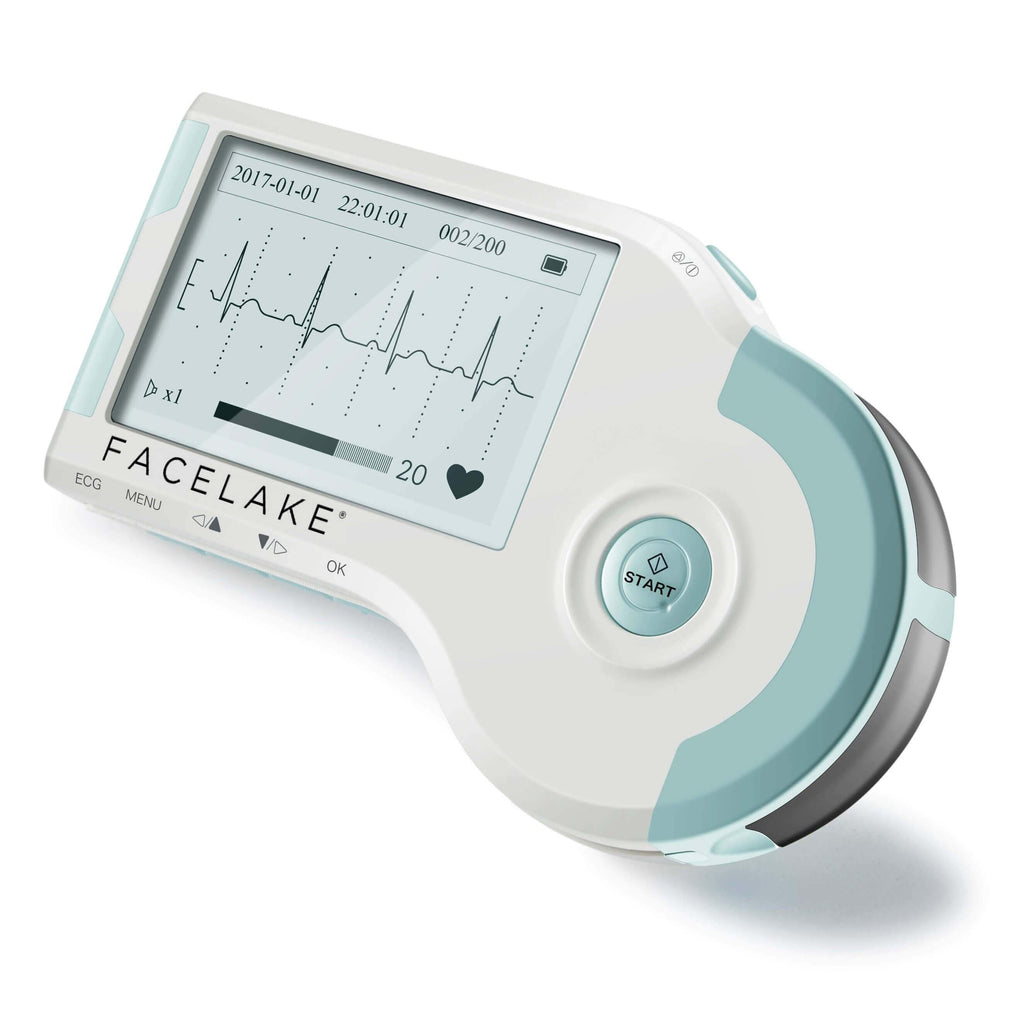Forgive me if I missed you, as I believe I am the only person in this forum to talk about using personal devices that measure biomarkers at home.
Biomarkers such as spO², heart rate, blood pressure, temperature, ECG QTc, and perfusion index.
I will assume everyone knows what the first four metrics are about ( the first one we would be quite familiar with especially after COVID).
The QTc measures the relaxation time of the heart after each pump cycle. Too long and you're hypothyroid, and too short- hyperthyroid.
The perfusion inexpensive(PI) tells how much of the flow of blood comes from the pumping action of the heart, and is said to correlate to how well blood circulates in the capillaries, which is vital to blood going in and out of organs.
I will dispense with the specifics such as the standard values and range for now. Those interested can ask.
To get the whole caboodle, it doesn't cost more than $350. Considering how much people here can spend on supplements, it seems to be a reasonable investment.
If you can avoid a trip to the ER, even when you have medical insurance, and avoid being poked with all sorts of sorts, and be experimented on by interns, and be given drugs you don't really need, why not?
Today, I experienced a medical incident, and without my tools, I certainly would have no choice but be taken to the ER.
Here is my story.
Today I experienced a situation that normally would have landed a person in the ER. But because I knew enough to handle it, even though it was the first time to happen to me, I stayed composed, didn't give in to panic mode, and my vitals were restored in short order.
I was in the Fishpond when I felt shortness of breath and came out. I took my vitals, and my spO2 was 84%, my temp was 35.5C, and my heart rate at 115.
I knew then I wasn't getting enough oxygen, a continuing effect of having OD'ed recently on cinnamon bark oil, and the lack of oxygen was keeping my body from increasing its temperature.
I knew bag breathing was not a viable solution, as this is a matter of external respiration (involving faulty oxygen intake in the lungs) and that it isn't about internal respiration, where CO2 is needed to enable oxygenation of tissues.
I stayed composed, and wrapped myself in a thick blanket as I drank cold water (edit: should be hot water, damn) as I managed my breathing making sure I keep it steady.
Even though I was coughing blood-tinged bubbly saliva (or transparent mucus) into a.cup continually, I remained unfazed, thinking the green stuff had already came out the past few days.
I sat for an hour, and my temperature rose to 38 before coming.back to.normal and my spO2 got back to 91, but my heart rate remained as high.
Lowe told me that my skin has turned ashen white during the ordeal but that it.has quickly been restored to normal.
It made me realize that had I acted differently, I may have died but I accept the risks involved in being my own doctor. I think that it is always better to die at my own hands, than at the hands of doctors.
It is just a.thought as the chances of it happening is a matter of probability, with odds still being in my favor.
I also am thankful that this.morning I woke up to see my spO2 chart giving me a score of 0. That.gave me an awareness that I am vulnerable. My acquisition of health monitoring devices over the years finally payed off.
Biomarkers such as spO², heart rate, blood pressure, temperature, ECG QTc, and perfusion index.
I will assume everyone knows what the first four metrics are about ( the first one we would be quite familiar with especially after COVID).
The QTc measures the relaxation time of the heart after each pump cycle. Too long and you're hypothyroid, and too short- hyperthyroid.
The perfusion inexpensive(PI) tells how much of the flow of blood comes from the pumping action of the heart, and is said to correlate to how well blood circulates in the capillaries, which is vital to blood going in and out of organs.
I will dispense with the specifics such as the standard values and range for now. Those interested can ask.
To get the whole caboodle, it doesn't cost more than $350. Considering how much people here can spend on supplements, it seems to be a reasonable investment.
If you can avoid a trip to the ER, even when you have medical insurance, and avoid being poked with all sorts of sorts, and be experimented on by interns, and be given drugs you don't really need, why not?
Today, I experienced a medical incident, and without my tools, I certainly would have no choice but be taken to the ER.
Here is my story.
Today I experienced a situation that normally would have landed a person in the ER. But because I knew enough to handle it, even though it was the first time to happen to me, I stayed composed, didn't give in to panic mode, and my vitals were restored in short order.
I was in the Fishpond when I felt shortness of breath and came out. I took my vitals, and my spO2 was 84%, my temp was 35.5C, and my heart rate at 115.
I knew then I wasn't getting enough oxygen, a continuing effect of having OD'ed recently on cinnamon bark oil, and the lack of oxygen was keeping my body from increasing its temperature.
I knew bag breathing was not a viable solution, as this is a matter of external respiration (involving faulty oxygen intake in the lungs) and that it isn't about internal respiration, where CO2 is needed to enable oxygenation of tissues.
I stayed composed, and wrapped myself in a thick blanket as I drank cold water (edit: should be hot water, damn) as I managed my breathing making sure I keep it steady.
Even though I was coughing blood-tinged bubbly saliva (or transparent mucus) into a.cup continually, I remained unfazed, thinking the green stuff had already came out the past few days.
I sat for an hour, and my temperature rose to 38 before coming.back to.normal and my spO2 got back to 91, but my heart rate remained as high.
Lowe told me that my skin has turned ashen white during the ordeal but that it.has quickly been restored to normal.
It made me realize that had I acted differently, I may have died but I accept the risks involved in being my own doctor. I think that it is always better to die at my own hands, than at the hands of doctors.
It is just a.thought as the chances of it happening is a matter of probability, with odds still being in my favor.
I also am thankful that this.morning I woke up to see my spO2 chart giving me a score of 0. That.gave me an awareness that I am vulnerable. My acquisition of health monitoring devices over the years finally payed off.
Last edited:




